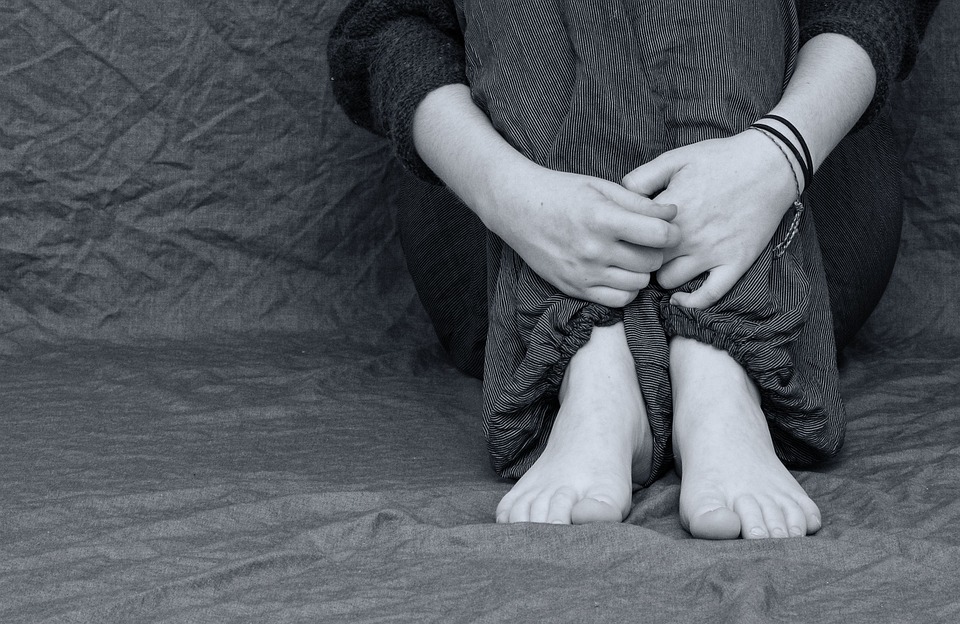The number of depressed patients has surged as the coronavirus outbreak keeps people homebound. There are Christians who are suffering from depression, and church co-workers have received pleas for assistance from depressed church members.
How can church workers who are not mental health professionals deal with these requests for help? I would like to share my experience of a recent experience in counseling a heavily depressed seeker.
The second day after the lockdown of my city in Hubei Province ended, I received a message from Sister Xia, whose husband had attempted suicide.
She related, “This afternoon I was so tired that I went to bed. Some minutes later, I was still worried about him. Then I got off the bed, went into his bedroom and found that he was attempting to hang himself. Fortunately, I was able to catch his attempt early enough. After being saved by the paramedics who rushed here, he became conscious again. Clear-headed, he had no idea what he had done. Do you think the devil caused this trouble? I’m about to have a break down. What should I do?”
Xia is a member of my group. Two years ago, her husband, Mr. Yan, attended our group gatherings on occasion but not regularly because of his busy work schedule and little faith. However, I often keep in touch with him with through calls, and I have maintained a close relationship with him after several visits.
Though I’m not a professional counselor, in my role as a church worker, pastor of his wife and a friend of his, I provided counsel to Yan. I joined an online course about pastoral counseling and read some books on the subject.
To relieve Xia's fear and anxiety, I had an online conversation with her on WeChat, China’s popular social media platform. From my conversation with her I learned the following three things about her husband.
First of all, his medical report shows that he was diagnosed with depression and hospitalized for some days. Medical personnel suggested that he see a doctor from the Department of Social Services in Wuhan after the city and area are reopened. There was no such expertise available in his hometown.
Second, his attitude toward faith could be an indicator of whether he was demon-possessed or psychotic. Always a supporter of Xia’s faith, he felt shame for his long-term absence from church services; he also promised to go to church with her as soon as he recovers.
Third, in recent years, he kept doubting if his symptoms indicated an illness or simply an inability to sleep well at night.
In summary, I concluded that the doctor's diagnosis was correct: Yan suffered from depression, not demonic possession.
I told Xia her husband would be cured through treatment after going through this severe phase of depression. I encouraged her to pray earnestly and look upon God, meanwhile, to take more precautions to keep her husband safe.
The second morning when I came to visit Yan he shared his inner pain with me. I told him he had severe depression. I explained to the couple the characteristics of demon-possessed people and further removed their doubts that “the devil was making trouble”. I tried to help them understand that depression is a common disease. A psychologist pointed out there are 350 million people in China who suffer from some form of depression, accounting for around 25% of the total population. What’s more, I told them, depression should not be feared and could be cured by treatment. Afterwards, I admonished them to cast all their worries on the Lord Jesus who is in charge of life.
Through talking with them, I learned that recently Yan often searched the Internet for superstitious methods of curing diseases. I exhorted them not to listen to those nonsense words.
Then I shared with them the testimonies of two sisters who put their trust in the Lord and were healed from the disease. At the same time, I encouraged him to reflect on where he sinned against God and repent.
I also told him to follow the doctor’s advice and follow through with the prescribed treatment. I learned that Yan had refused to take the anti-depression medicine the doctor prescribed for him but yet adamantly took blood-pressure pills he bought at a pharmacy.
I explained solemnly that he must take doses of anti-depression at the severe phase and the serious consequences of not doing that. I also warned him that some medicine would make the side effects of depression worse.
After searching for information online, Yan’s son agreed with me that his father’s blood-pressure medicine was likely to trigger side effects of depression. Eventually, Yan also agreed with me.
Then I guided him toward positive steps. I encouraged him to replace his mantras of “I don’t have hope” or “I cannot bear it any more” with praise. I suggested that he care for the needs of other people, provide encouragement and be grateful to God and the people around him.
The last suggestion was that he take care of his diet, exercise more, and make a schedule for himself. No matter how he might feel, he must adhere to the schedule. When he felt better, he should do some work and other things he could. Meanwhile, his daily activities should include Bible reading and prayer. I told his wife to improve his diet to enhance his immune system.
My next step was to counsel his wife and child. I told them a depressed patient is in desperate need of his family’s support. He did not mean to be depressed, in fact, he suffered from depression and was working on how to solve it.
I also suggested that if Yan should lose his temper, that they should let it go and not quarrel with him. What was more, I instructed Xia not to grumble against his godlessness, faint faith, or lack of joy and care for his family, otherwise, her complaints could lead to more pressure on him which might affect his recovery. I encouraged them to show kindness to him and keep him company.
After this visit, I followed up with additional visits and calls to him, often reminding him to take his pills, rely on God, and I guided him in praying.
My reflection
In reflecting on this experience, I believe that the first thing pastoral workers should do is learn more about counseling and develop the needed skills to help others. Counseling is much needed in churches and should be approached professionally.
The second point is empathy. Counselors should feel their patients’ pains rather than lecture them at first sight. We should listen to their words so they feel our kindness and are able to relax and lower their defenses. We should never condemn sins or put ourselves on the moral high ground.
Finally, counselors need to pay attention to communication skills and counsel others with patience.
- Translated by Karen Luo












